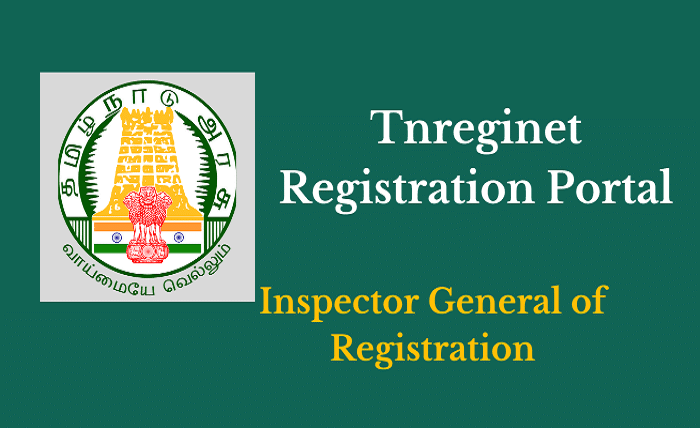The Tamil Nadu Registration Department (TNRD) is responsible for registering property documents, maintaining property records, and issuing encumbrance certificates. TNREGINET is an online portal launched by the TNRD in 2014 to provide citizens with convenient and efficient access to its services.
Through TNREGINET, citizens can:
- Register property documents online
- Search for property records
- Apply for encumbrance certificates
- Track the status of their applications
- View and print registered documents
- Make payments online
Features of TNREGINET
Some of the key features of TNREGINET include:
- Online registration of property documents: TNREGINET allows citizens to register property documents online without having to visit a sub-registrar office. This saves time and effort, and reduces the risk of corruption.
- Search for property records: TNREGINET allows citizens to search for property records by using a variety of criteria, such as property location, owner name, and document number. This can be helpful for buyers, sellers, and lenders who need to verify property ownership or check for any encumbrances on a property.
- Application for encumbrance certificates: An encumbrance certificate is a document that shows the ownership status of a property and any encumbrances, such as mortgages or liens, on the property. TNREGINET allows citizens to apply for encumbrance certificates online and receive them within a few days.
- Tracking the status of applications: TNREGINET allows citizens to track the status of their applications online. This helps to ensure that their applications are being processed in a timely manner.
- Viewing and printing registered documents: TNREGINET allows citizens to view and print registered documents online. This is convenient for citizens who need to access their registered documents for any reason.
- Online payments: TNREGINET allows citizens to make payments online for registration fees and other charges. This saves time and effort, and reduces the risk of corruption.
Read more about How2Invest: A Comprehensive Guide to Making Smart Investment Decisions
Benefits of using TNREGINET
There are many benefits to using TNREGINET, including:
- Convenience: TNREGINET provides citizens with a convenient way to access the services offered by the TNRD. Citizens can avail of these services from anywhere at any time.
- Efficiency: TNREGINET has made the TNRD more efficient. The online registration process has reduced the time it takes to register property documents.
- Transparency: TNREGINET has made the TNRD more transparent. Citizens can now track the status of their applications online and view their registered documents.
- Reduced corruption: TNREGINET has reduced the risk of corruption by eliminating the need for middlemen and providing citizens with a direct way to access the services offered by the TNRD.
How to use TNREGINET
To use TNREGINET, you need to create an account on the portal. You can create an account by visiting the TNREGINET website and clicking on the “New User” registration link.
Once you have created an account, you can log in and access the various services offered by TNREGINET. To register a property document, you need to upload the required documents and pay the registration fees online. To search for property records or apply for an encumbrance certificate, you need to enter the required information and submit the form.
TNREGINET is a user-friendly portal. However, if you need any assistance, you can contact the TNREGINET customer support team. The customer support team can be contacted by phone, email, or chat.
Conclusion
TNREGINET is a valuable tool for citizens of Tamil Nadu. It provides a convenient, efficient, and transparent way to access the services offered by the Tamil Nadu Registration Department. I encourage everyone to use TNREGINET whenever they need to avail of any of these services.
FAQ
Q: Who can use TNREGINET?
A: Any citizen of Tamil Nadu can use TNREGINET.
Q: What are the benefits of using TNREGINET?
A: The benefits of using TNREGINET include convenience, efficiency, transparency, and reduced corruption.

